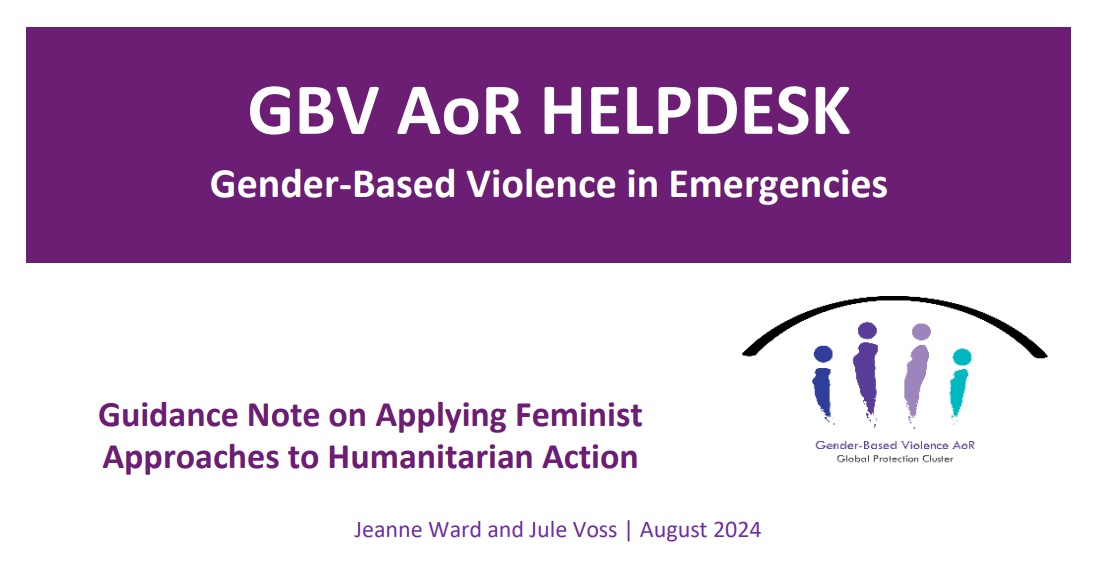
This paper considers the question of whether feminist theories and principles hold the potential to help the humanitarian system better meet many of its highest priorities. Research across the world provides widespread evidence that feminism can benefit not just women and girls, but entire communities and societies. Already across the UN system, there are strong normative frameworks and rhetorical commitments to women’s rights and empowerment. Feminist principles are deeply embedded in UN conventions and guidance that are key to humanitarian response.
However, at the level of humanitarian action, these feminist principles tend to “show up” most regularly and explicitly only in specific areas: GBV prevention and response, gender mainstreaming and gender-transformative programming, and the Women, Peace and Security Agenda. And yet, feminist principles are clearly linked to many broader humanitarian goals for and approaches to humanitarian action. Some of these include increased accountability to and protection of affected populations; better representation and leadership of affected populations through localization efforts; ensuring centrality of protection; working across the humanitarian-development-peace nexus; and improving data for better humanitarian response.